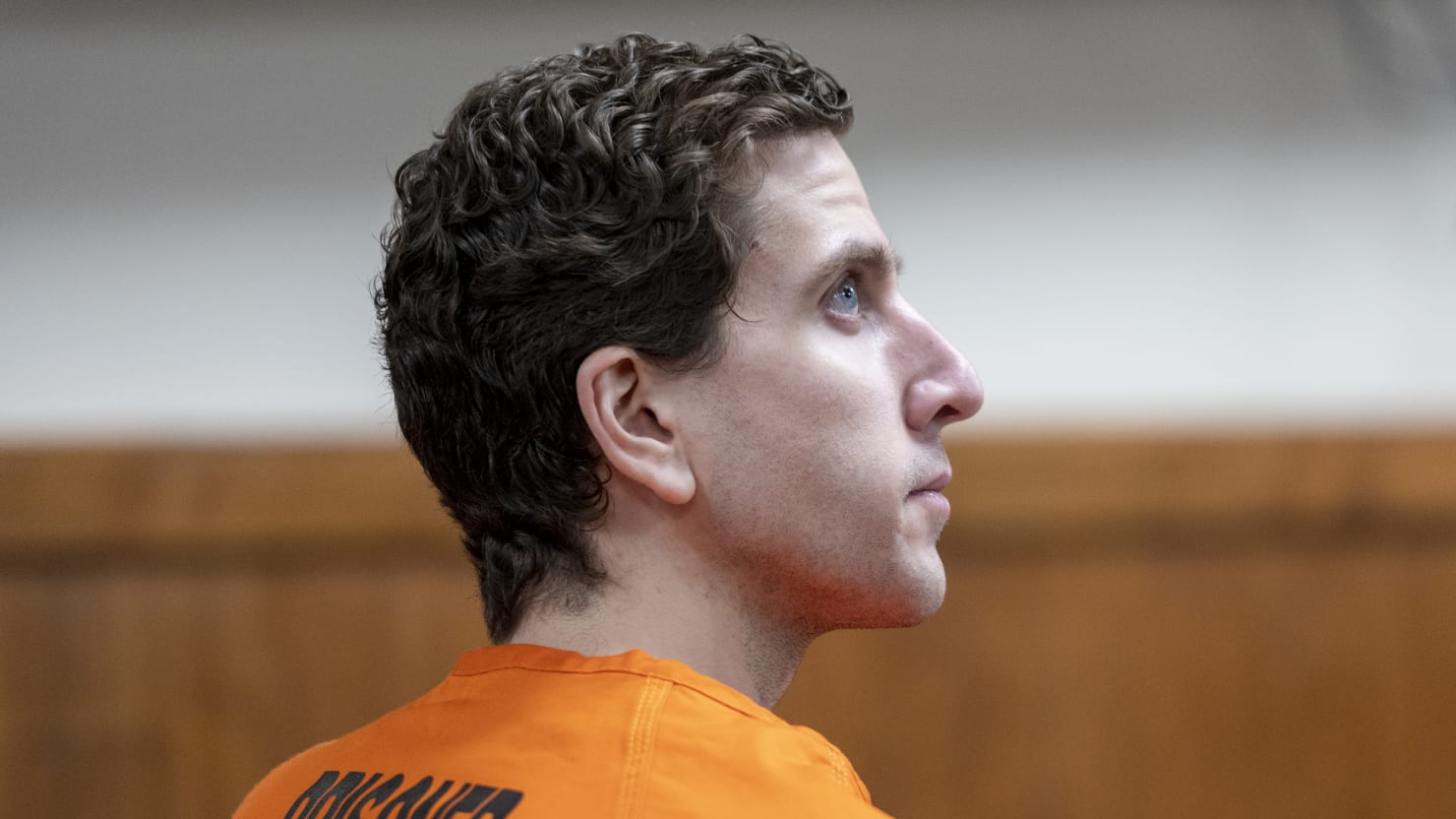The DNA collected from a knife sheath found at the scene of the quadruple murder of four University of Idaho students last fall is a “statistical match” to accused killer Bryan Kohberger, prosecutors say.
In a June 16 motion for a protective order, Idaho prosecutors revealed that a “STR” DNA comparison was performed between a cheek swab collected from 28-year-old Kohberger and the sheath found “face down and partially under” one of the four murder victims. The DNA was “at least 5.37 octillion times more likely” to belong to Kohberger than an “unrelated individually randomly selected from the general population,” prosecutors said.
The motion seeks to protect some of the investigation, including raw DNA data, lab notes, the names and personal information of Kohberger’s relatives, and names that were matched against the DNA from genealogy services. The DNA link is the latest development in the closely watched case, and provides new details into how investigators used genetic genealogy to identify Kohberger as their prime suspect.
Prosecutors allege that Kohberger murdered Kaylee Goncalves, Ethan Chapin, Xana Kernodle, and Madison Mogen as they slept in their off-campus home in Moscow at around 4 a.m. on Nov. 13. The former doctoral criminology student at Washington State University has pleaded not guilty to several charges and is scheduled to face trial in October.
The motion says that when authorities arrived at the scene, “the sheath was face down and partially under both Madison’s body and the comforter on the bed.” Initially, the Idaho State Lab concluded that DNA found on the sheath came from a male, but the FBI was not able to directly tie it to any data in publicly available genealogy sites.
“The FBI went to work building family trees of the genetic relatives to the suspect DNA left at the crime scene in an attempt to identify the contributor of the unknown DNA,” the motion states, adding that a break in the case came when a tip was sent in to investigate Kohberger.
The tip, the motion states, did not provide “law enforcement with substantive evidence of guilt” but did prompt them to collect a DNA sample from trash recovered from Kohberger’s Pennsylvania family home. Ultimately, investigators also took a buccal swab from the suspect. That evidence was then sent to the Idaho State Lab for testing, which prosecutors say yielded a match with the sheath.

Got a tip? Send it to The Daily Beast here.
This post originally appeared on and written by:
Pilar Melendez
The Daily Beast 2023-06-21 16:19:00

